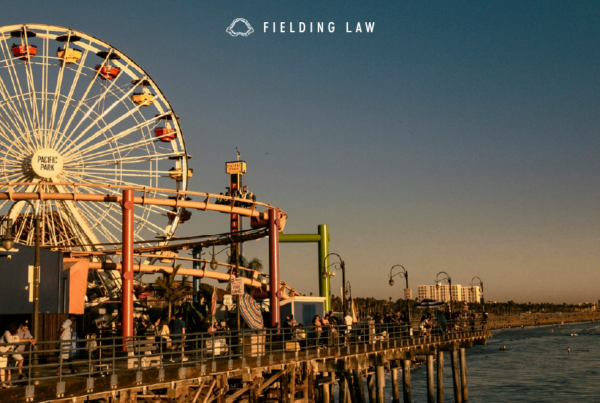When you are dealing with a personal injury case, it is natural to wonder how long the process will take. Every case is unique, but understanding the general steps can help you manage expectations and navigate the journey ahead.
It Takes Time to Build a Strong Case
Several factors contribute to the duration of a personal injury case:
Complexity of the Case
The complexity of your personal injury case can significantly impact its duration. Cases involving more severe injuries, higher financial stakes, or multiple liable parties often require extensive legal and medical analysis. For instance, cases with catastrophic injuries may need detailed expert testimonies and multiple medical evaluations to fully understand the extent of damages and future medical needs. Additionally, if liability is disputed or shared among several parties, determining fault and negotiating settlements can become more intricate and time-consuming. All these factors contribute to a longer case timeline.
Gathering Evidence
Thoroughly gathering and analyzing evidence is crucial to building a strong personal injury case, but this process can be time-consuming. Evidence includes medical records, police reports, witness statements, and expert testimonies. Collecting this information often involves coordinating with healthcare providers, law enforcement agencies, and other entities, which can take time. Furthermore, some evidence, like medical records, may need to be updated continuously to reflect ongoing treatment and recovery. This detailed investigation ensures that all aspects of the case are covered, supporting a comprehensive claim for compensation.
Negotiations
Settlement negotiations with insurance companies or opposing parties can often expedite the resolution of a personal injury case. However, reaching a fair settlement still takes time and patience. Both sides need to thoroughly review all evidence, assess the extent of damages, and negotiate terms. Insurance companies may initially offer lower settlements, requiring back-and-forth discussions to reach an agreement that fairly compensates for your injuries and losses. While negotiations can sometimes be quicker than going to trial, they still require careful consideration and time to ensure a fair outcome.
Court Schedules
If your personal injury case goes to trial, the court’s schedule will play a significant role in determining the timeline. Courts often have busy dockets, and finding available dates for hearings, pre-trial motions, and the trial itself can lead to delays. Additionally, once a trial date is set, it can be postponed due to unforeseen circumstances, such as the availability of witnesses or the need for additional evidence. These scheduling challenges can extend the overall duration of your case, sometimes by several months or more.
What Are the Steps of a Personal Injury Case?
Understanding the steps involved in a personal injury case can help you navigate the process with greater confidence and clarity. Each phase is crucial in building a strong case and achieving a fair outcome.
1. Initial Consultation
The first step in a personal injury case is the initial consultation with an attorney. During this meeting, you will discuss the details of your accident, injuries, and any evidence you have gathered. The attorney will evaluate the strengths of your case and explain your legal options. This phase typically takes a few days to a couple of weeks, depending on your availability and the complexity of your case.
2. Investigation
Once you hire an attorney, they will begin a thorough investigation. This includes gathering medical records, police reports, witness statements, and any other relevant evidence. Your attorney may also consult with experts to strengthen your case. The investigation phase can take several weeks to a few months, depending on the amount and complexity of the evidence.
3. Filing a Claim
After the investigation, your attorney will file a claim with the insurance company or the party responsible for your injuries. This claim includes a demand letter outlining your injuries, damages, and the compensation you are seeking. The insurance company will review the claim and either accept, deny, or counter the offer. This process can take a few weeks to a few months, depending on the responsiveness of the insurance company.
4. Negotiations
Many personal injury cases are settled out of court through negotiations between your attorney and the insurance company. Your attorney will advocate for a fair settlement that covers your medical expenses, lost wages, and other damages. Settlement negotiations can take anywhere from a few weeks to several months. If a fair settlement cannot be reached, your case will move to the next step.
5. Filing a Lawsuit
If negotiations do not result in a satisfactory settlement, your attorney will file a lawsuit on your behalf. This initiates the formal legal process. The lawsuit will be filed in the appropriate court, and both parties will be notified. This phase marks the beginning of the pre-trial process, which can last several months.
6. Discovery Phase
During the discovery phase, both parties exchange information and gather additional evidence. This includes written questions (interrogatories), document requests, and depositions (sworn statements taken outside of court). The discovery phase ensures that both sides have access to all relevant information. This process can take six months to a year, depending on the complexity of the case and the cooperation of the parties involved.
7. Pre-Trial Motions and Hearings
Before the trial, there may be several pre-trial motions and hearings to address legal issues and attempt further settlement negotiations. These motions can include requests to dismiss the case, exclude certain evidence, or compel the other party to provide information. Pre-trial motions and hearings can add several months to the timeline.
8. Trial
If the case goes to trial, both parties will present their evidence and arguments before a judge or jury. The trial itself can last a few days to several weeks, depending on the complexity of the case. After the trial, the judge or jury will deliberate and deliver a verdict. The trial phase is often the most time-consuming and stressful part of the process.
9. Post-Trial and Appeals
If either party is dissatisfied with the verdict, they may file an appeal. The appeals process can add another year or more to the resolution of the case. However, many cases are resolved before reaching this stage, either through post-trial motions or settlement agreements.
10. Lien Negotiations
Once a settlement or verdict is reached, your attorney will negotiate any outstanding medical liens or claims against your settlement. Medical providers, health insurance companies, or other entities that paid for your medical treatment may place liens on your settlement to recover their costs. Successfully negotiating these liens can significantly impact the amount you receive. This step can take a few weeks to several months, depending on the complexity of the liens and the willingness of the lien holders to negotiate.
11. Case Resolution
After lien negotiations are complete, your attorney will finalize the case resolution. This involves preparing and filing any necessary documents to dismiss the lawsuit if a trial occurred, or to confirm the settlement agreement. This phase ensures that all legal aspects of the case are formally concluded. The timeline for case resolution can vary but generally takes a few weeks.
12. Delivery of Final Net Check
The final step in a personal injury case is the delivery of your net settlement check. After deducting legal fees, court costs, and any negotiated liens, your attorney will issue you the remaining amount. This step marks the conclusion of your case, providing you with the compensation needed to cover your expenses and move forward. The delivery of the final net check typically occurs a few weeks after case resolution.
Why Hire Fielding Law
 Navigating a personal injury case alone can be overwhelming. At Fielding Law, we are dedicated to supporting you every step of the way. Our experienced attorneys offer compassionate and tenacious representation, ensuring your case is handled with care and expertise. We understand the complexities and will work tirelessly to secure the compensation you deserve. Call 833.88.SHARK to discuss your case today.
Navigating a personal injury case alone can be overwhelming. At Fielding Law, we are dedicated to supporting you every step of the way. Our experienced attorneys offer compassionate and tenacious representation, ensuring your case is handled with care and expertise. We understand the complexities and will work tirelessly to secure the compensation you deserve. Call 833.88.SHARK to discuss your case today.
Note: Information provided is for educational purposes and does not constitute legal advice. Always consult with a qualified attorney for legal concerns.






